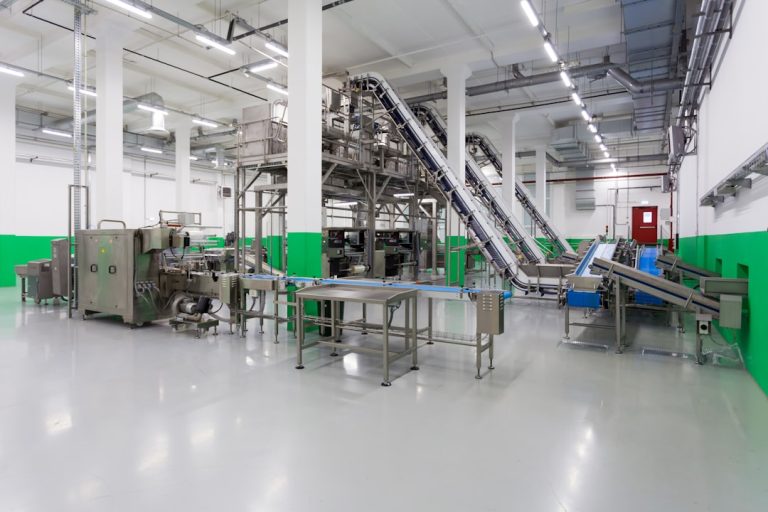
Food preparation supervisors play a pivotal role in the food industry, acting as the linchpin between management and kitchen staff. They are responsible for overseeing the daily operations of food preparation, ensuring that meals are prepared efficiently, safely, and to the highest quality standards. This position is crucial in various settings, including restaurants, catering companies, and institutional kitchens such as schools and hospitals.
The supervisor’s role extends beyond mere oversight; they are also tasked with training staff, managing inventory, and maintaining compliance with health regulations. In addition to operational responsibilities, food preparation supervisors are often involved in menu planning and recipe development. Their expertise allows them to contribute to the culinary creativity of the establishment while ensuring that dishes can be produced consistently and within budget constraints.
This dual focus on creativity and efficiency is essential in a competitive food industry where customer satisfaction hinges on both taste and presentation. By balancing these elements, food preparation supervisors help to create a dining experience that meets or exceeds customer expectations.
Key Takeaways
- Food preparation supervisors play a crucial role in overseeing the food preparation process in the food industry, ensuring quality and safety standards are met.
- Their responsibilities include managing kitchen staff, creating work schedules, and ensuring compliance with food safety regulations.
- Qualifications and skills required for food preparation supervisors include a high school diploma, culinary training, and strong leadership and communication abilities.
- Food safety and hygiene are of utmost importance in food preparation, and supervisors play a key role in enforcing these standards to prevent foodborne illnesses.
- Challenges faced by food preparation supervisors include managing a fast-paced and high-pressure work environment, ensuring consistency in food quality, and handling staffing issues.
Responsibilities and Duties of Food Preparation Supervisors
The responsibilities of food preparation supervisors are multifaceted and require a blend of culinary skills and managerial acumen. One of their primary duties is to supervise kitchen staff during food preparation, ensuring that all tasks are completed in a timely manner. This includes delegating responsibilities based on individual strengths and monitoring performance to maintain high standards of quality.
Supervisors must also conduct regular training sessions to keep staff updated on new techniques, equipment, and safety protocols. Another critical responsibility is inventory management. Food preparation supervisors must keep track of stock levels, order supplies as needed, and minimize waste through efficient use of ingredients.
This involves not only understanding the culinary aspects but also having a grasp of cost control measures. They often work closely with suppliers to negotiate prices and ensure that the kitchen is well-stocked with fresh ingredients. Additionally, they are responsible for maintaining cleanliness and organization in the kitchen, which is vital for both safety and efficiency.
Qualifications and Skills Required for Food Preparation Supervisors

To excel as a food preparation supervisor, individuals typically need a combination of formal education and practical experience. Many employers prefer candidates with a degree or diploma in culinary arts or a related field. This educational background provides foundational knowledge in cooking techniques, food safety, and nutrition.
However, hands-on experience in a kitchen environment is equally important; many supervisors start their careers as line cooks or kitchen assistants before moving up the ranks. In addition to educational qualifications, certain skills are essential for success in this role. Strong leadership abilities are crucial, as supervisors must motivate their teams and foster a collaborative work environment.
Excellent communication skills are also necessary for effectively conveying instructions and feedback to staff. Furthermore, problem-solving skills come into play when addressing issues such as staffing shortages or equipment malfunctions. A keen understanding of food safety regulations and best practices is paramount, as supervisors must ensure compliance to protect both customers and the establishment.
Importance of Food Safety and Hygiene in Food Preparation
| Metrics | Data |
|---|---|
| Number of Foodborne Illnesses | 600 million cases annually |
| Cost of Foodborne Illnesses | Approximately 55 billion per year |
| Importance of Handwashing | Reduces risk of foodborne illness by 50% |
| Proper Cooking Temperatures | 165°F for poultry, 145°F for beef, 145°F for fish |
| Food Safety Training | Reduces risk of foodborne illness by 70% |
Food safety and hygiene are non-negotiable aspects of food preparation that directly impact public health. Food preparation supervisors are at the forefront of implementing safety protocols within the kitchen. They must ensure that all staff members adhere to proper hygiene practices, such as regular handwashing, wearing appropriate attire, and using sanitized equipment.
This vigilance helps prevent foodborne illnesses, which can have severe consequences for both customers and businesses. Moreover, supervisors are responsible for conducting regular inspections of food storage areas and preparation surfaces to ensure compliance with health regulations. They must be knowledgeable about safe food handling practices, including proper cooking temperatures and cross-contamination prevention.
By fostering a culture of safety within the kitchen, food preparation supervisors not only protect patrons but also enhance the reputation of their establishment. A commitment to food safety can lead to positive reviews and repeat business, which are vital for long-term success in the competitive food industry.
Challenges Faced by Food Preparation Supervisors
Food preparation supervisors encounter a variety of challenges that can complicate their roles.
Supervisors must navigate interpersonal dynamics while ensuring that all team members work cohesively towards common goals.
This requires patience, empathy, and strong conflict resolution skills to address any issues that may arise among staff. Another challenge is the fast-paced nature of the food industry itself. Supervisors often work under pressure during peak hours when demand for food is high.
They must maintain composure while coordinating multiple tasks simultaneously, from overseeing food preparation to managing customer orders. Additionally, unexpected situations such as equipment breakdowns or supply shortages can disrupt operations, requiring quick thinking and adaptability to keep the kitchen running smoothly.
Career Growth and Advancement Opportunities for Food Preparation Supervisors

Advancement Opportunities in the Culinary Field
Career advancement opportunities for food preparation supervisors can be quite promising within the culinary field. With experience and demonstrated leadership capabilities, many supervisors can progress to higher management positions such as kitchen manager or executive chef. These roles typically involve greater responsibility in terms of menu development, budgeting, and overall kitchen operations.
Specializing in Niche Markets
Furthermore, some food preparation supervisors may choose to specialize in specific areas such as catering or nutrition management, opening doors to niche markets within the industry. This specialization can lead to unique opportunities and challenges, allowing supervisors to stand out in their field.
Enhancing Career Prospects through Education and Networking
Continuing education through workshops or certification programs can also enhance career prospects by providing additional skills and knowledge relevant to emerging trends in food service. Networking within professional organizations can lead to mentorship opportunities and connections that facilitate career growth. By investing in their education and professional network, food preparation supervisors can position themselves for long-term success in the culinary industry.
Impact of Food Preparation Supervisors on the Overall Customer Experience
The influence of food preparation supervisors on customer experience cannot be overstated. Their leadership directly affects the quality of food served, which is a primary factor in customer satisfaction. When supervisors ensure that meals are prepared with care and attention to detail, it reflects positively on the establishment as a whole.
Consistency in taste and presentation fosters trust among patrons who return expecting the same high standards. Moreover, food preparation supervisors play a crucial role in creating a positive atmosphere within the kitchen that ultimately translates to customer service. A well-organized kitchen with motivated staff leads to efficient service times and fewer errors in orders.
When kitchen staff feel supported and valued by their supervisor, they are more likely to deliver exceptional service on the front lines. This synergy between back-of-house operations and customer-facing interactions is essential for cultivating a loyal customer base.
The Future of Food Preparation Supervisors in the USA
As the food industry continues to evolve, so too will the role of food preparation supervisors in the USWith increasing consumer demand for transparency regarding sourcing and sustainability, supervisors will need to adapt by incorporating these values into their operations. This may involve sourcing local ingredients or implementing waste reduction strategies that align with environmentally conscious practices. Additionally, advancements in technology are poised to reshape how kitchens operate.
Automation tools for inventory management or cooking processes may become more prevalent, requiring supervisors to embrace new technologies while maintaining traditional culinary skills. The ability to integrate technology into daily operations will be essential for staying competitive in an ever-changing landscape. As health trends shift towards plant-based diets and alternative proteins, food preparation supervisors will also need to expand their culinary repertoire to meet diverse dietary preferences.
Continuous learning will be vital for adapting menus and training staff accordingly. The future promises both challenges and opportunities for food preparation supervisors who are willing to innovate and lead their teams through this dynamic industry landscape.
Food Preparation Supervisors play a crucial role in overseeing the daily operations of food preparation and ensuring that food safety standards are met. According to a recent article on careersintheusa.com, occupations in the USA are constantly evolving and adapting to meet the demands of the modern workforce. As the food industry continues to grow and change, the role of Food Preparation Supervisors will become increasingly important in ensuring that food is prepared safely and efficiently.
FAQs
What is the role of a food preparation supervisor?
A food preparation supervisor is responsible for overseeing the preparation and cooking of food in a kitchen or food service establishment. They ensure that food is prepared according to recipes and quality standards, and that kitchen staff adhere to food safety and sanitation regulations.
What are the typical duties of a food preparation supervisor?
Typical duties of a food preparation supervisor include planning and organizing food preparation activities, training and supervising kitchen staff, monitoring inventory and ordering supplies, ensuring food safety and sanitation standards are met, and maintaining kitchen equipment.
What skills are required to become a food preparation supervisor?
Skills required for a food preparation supervisor include strong leadership and communication skills, knowledge of food safety and sanitation regulations, the ability to work in a fast-paced environment, and proficiency in food preparation techniques and kitchen equipment.
What education or training is needed to become a food preparation supervisor?
While a high school diploma may be sufficient for some positions, many employers prefer candidates with a degree in culinary arts or a related field. Relevant work experience in food preparation and kitchen management is also typically required.
What is the job outlook for food preparation supervisors in the USA?
According to the U.S. Bureau of Labor Statistics, the employment of food service managers, including food preparation supervisors, is projected to grow 11 percent from 2020 to 2030, which is faster than the average for all occupations. This growth is attributed to the increasing demand for dining establishments and food services.






